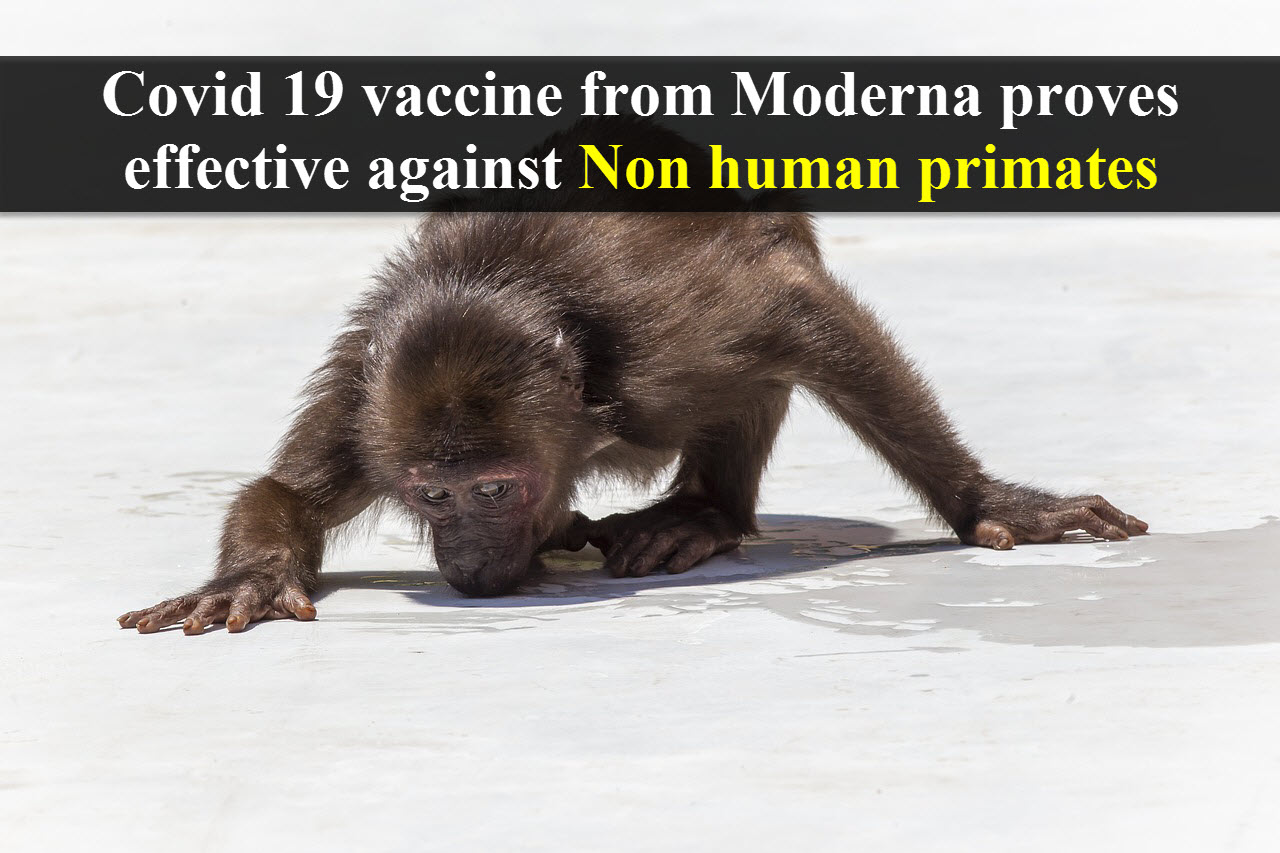
Moderna, Inc a clinical stage biotechnology company pioneering messenger RNA (mRNA) therapeutics and vaccines to create a new generation of transformative medicines for patients, today announced a preclinical study evaluating mRNA-1273, its vaccine candidate against COVID-19, was published in The New England Journal of Medicine. The study showed a two-dose vaccination schedule of mRNA-1273 led to a robust immune response and protection against SARS-CoV-2 infection in the upper and lower airways in non-human primates, without evidence of vaccine-associated enhanced respiratory disease (VAERD).
In the study, immunogenicity and protective efficacy were assessed after a two-dose vaccination schedule of 10 or 100 µg doses of mRNA-1273 or control given four weeks apart (n=24; 8 per group). Four weeks after the second vaccination, animals were challenged with high doses of SARS-CoV-2 through intranasal and intratracheal routes.
After two vaccinations, the immune response observed in this non-human primate study was consistent with the recently reported Phase 1 human study of mRNA-1273, also published in The New England Journal of Medicine. At the 10 µg dose, the geometric mean titer (GMT, ID50) measured in a pseudovirus (PsV) neutralization assay was 103, similar to the GMT for a panel of convalescent sera reported previously (109), and below the GMT achieved by mRNA-1273 in the Phase 1 human study at the 100 µg dose (231) in the same PsV assay. At the higher dose in the non-human primates (100 µg) neutralizing antibody titers increased further, with PsV GMT reaching 1,862. Vaccination also led to a significant increase in T cell responses, primarily Th1 CD4 T cells.
Two doses of mRNA-1273 provided protection against lung inflammation following viral challenge with SARS-CoV-2 in non-human primates at both the 10 µg and 100 µg dose levels. In addition, both the 10 µg and 100 µg dose groups demonstrated protection against viral replication in the lungs, with the 100 µg dose also protecting against viral replication in the nose of the animals. Of note, none of the eight animals in the 100 µg group showed detectable viral replication in the nose compared to six out of eight in the placebo group on day 2.
“This important preclinical study shows that mRNA-1273 protected against a high dose SARS-CoV-2 infection in non-human primates and prevented pulmonary disease in all animals, further supporting the clinical advancement of mRNA-1273,” said Stephen Hoge, M.D., President at Moderna. “We believe this is the first demonstration of control of viral replication within two days of challenge in both the nose and lungs in non-human primates by a vaccine against COVID-19. Given the similarity between the protective immune response generated by mRNA-1273 in this study and the immune response seen in humans in the recently published Phase 1 clinical data for the vaccine, we remain cautiously optimistic that mRNA-1273 will be able to prevent COVID-19 disease and may also slow the spread of SARS-CoV-2 by shortening the duration of shedding.”
The Biomedical Advanced Research and Development Authority (BARDA), part of the Office of the Assistant Secretary for Preparedness and Response (ASPR) within the U.S. Department of Health and Human Services (HHS), partially supported the research and development of mRNA-1273 with federal funding under Contract no. 75A50120C00034. A summary of the company’s work to date on COVID-19 can be found here.













